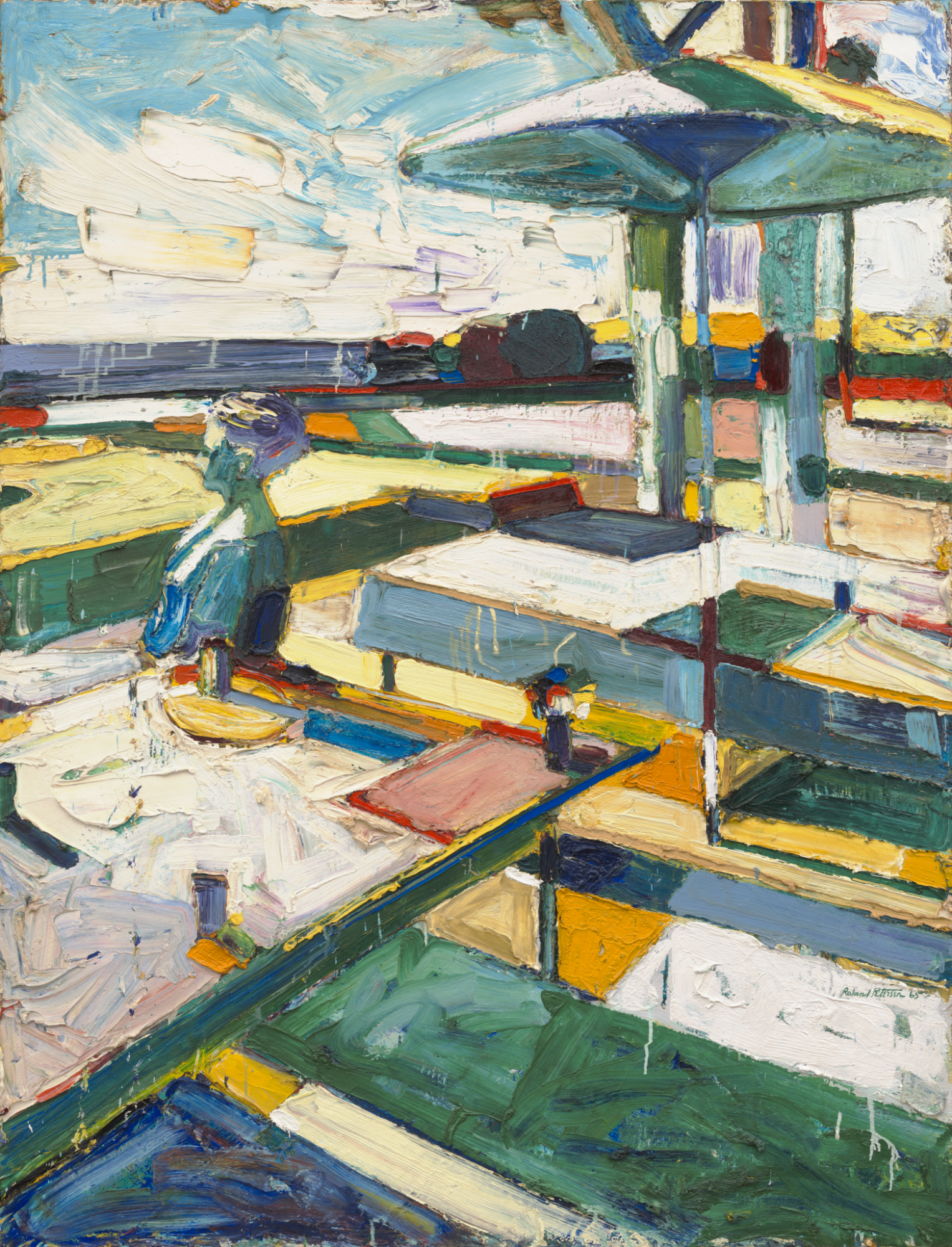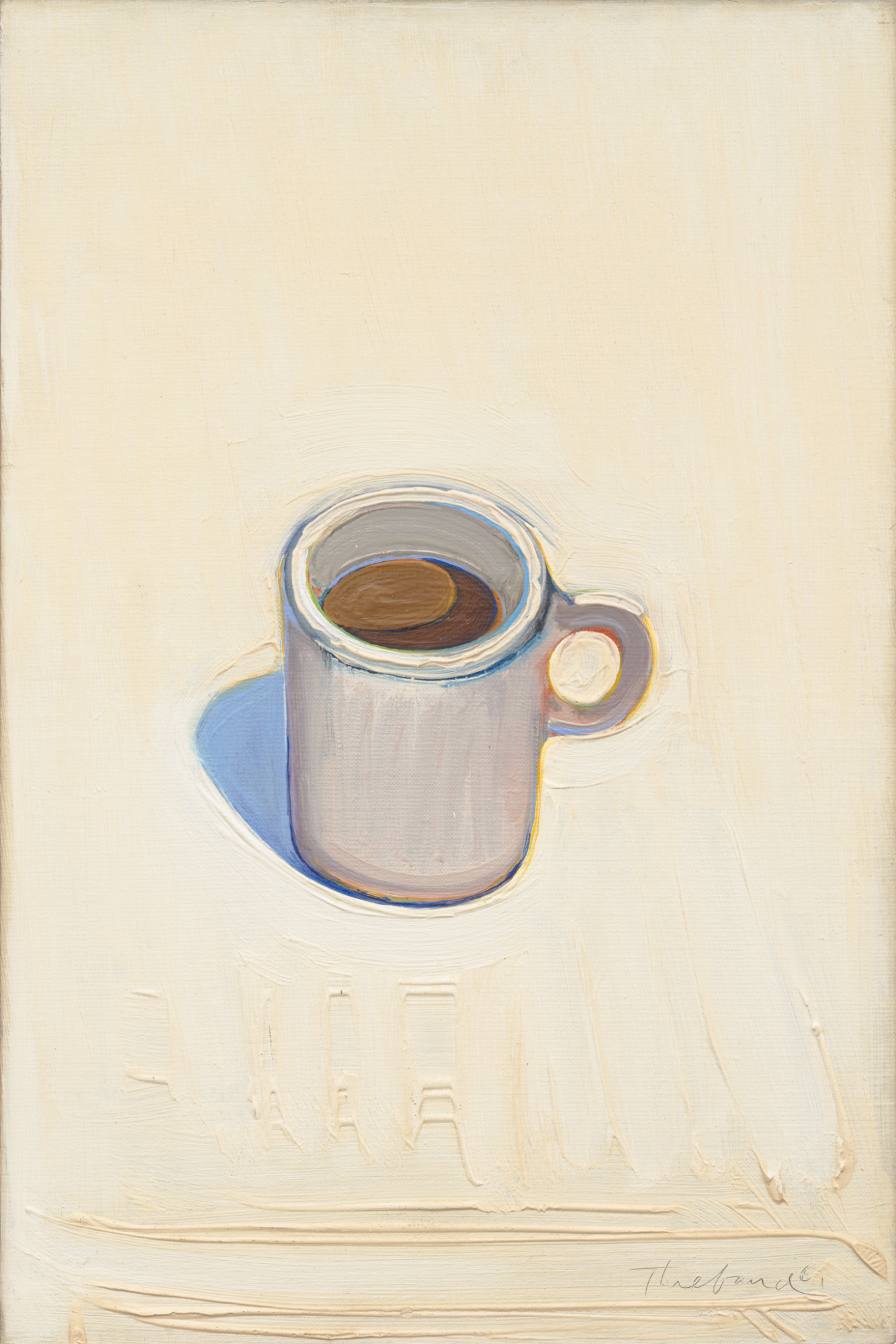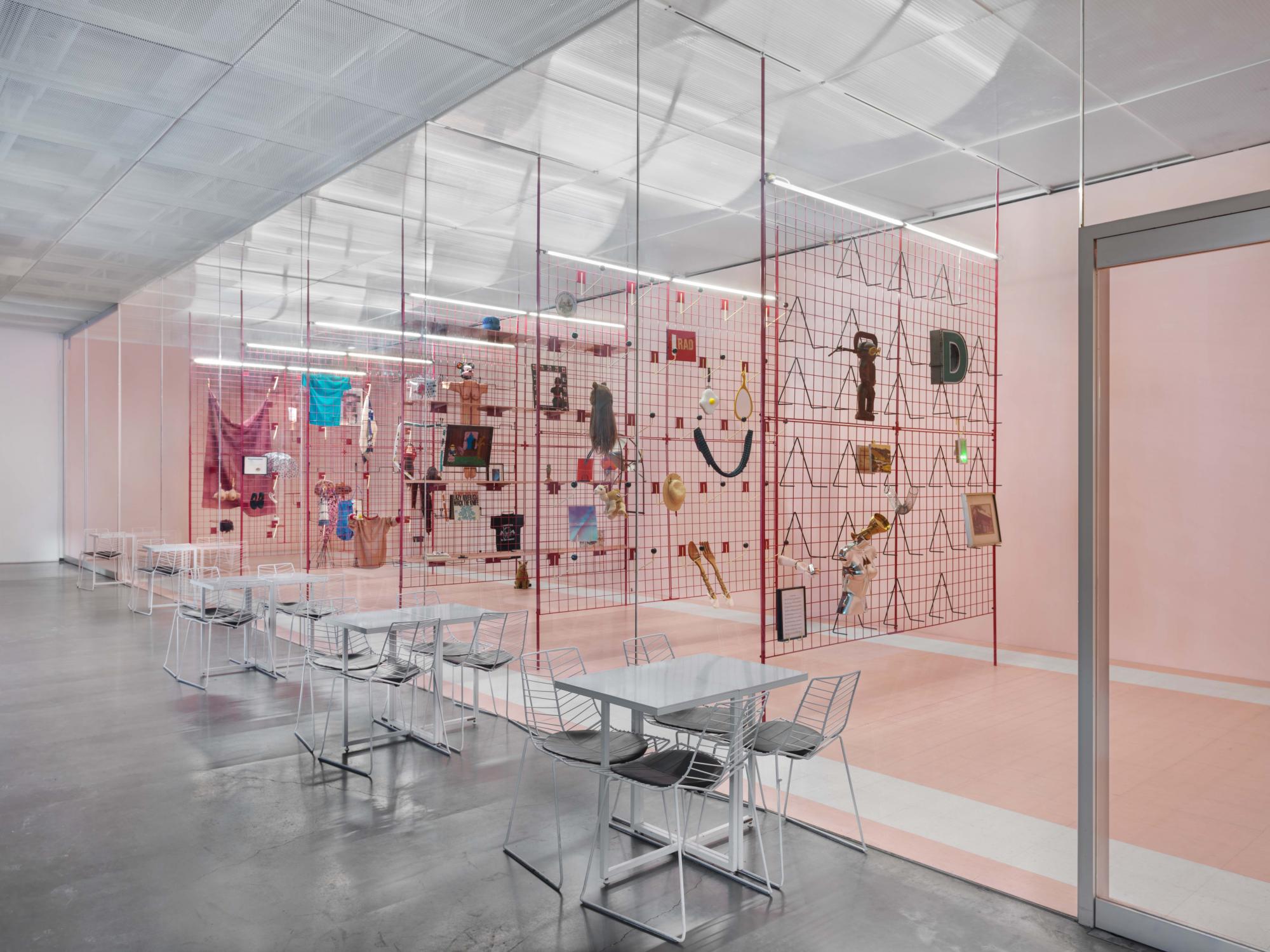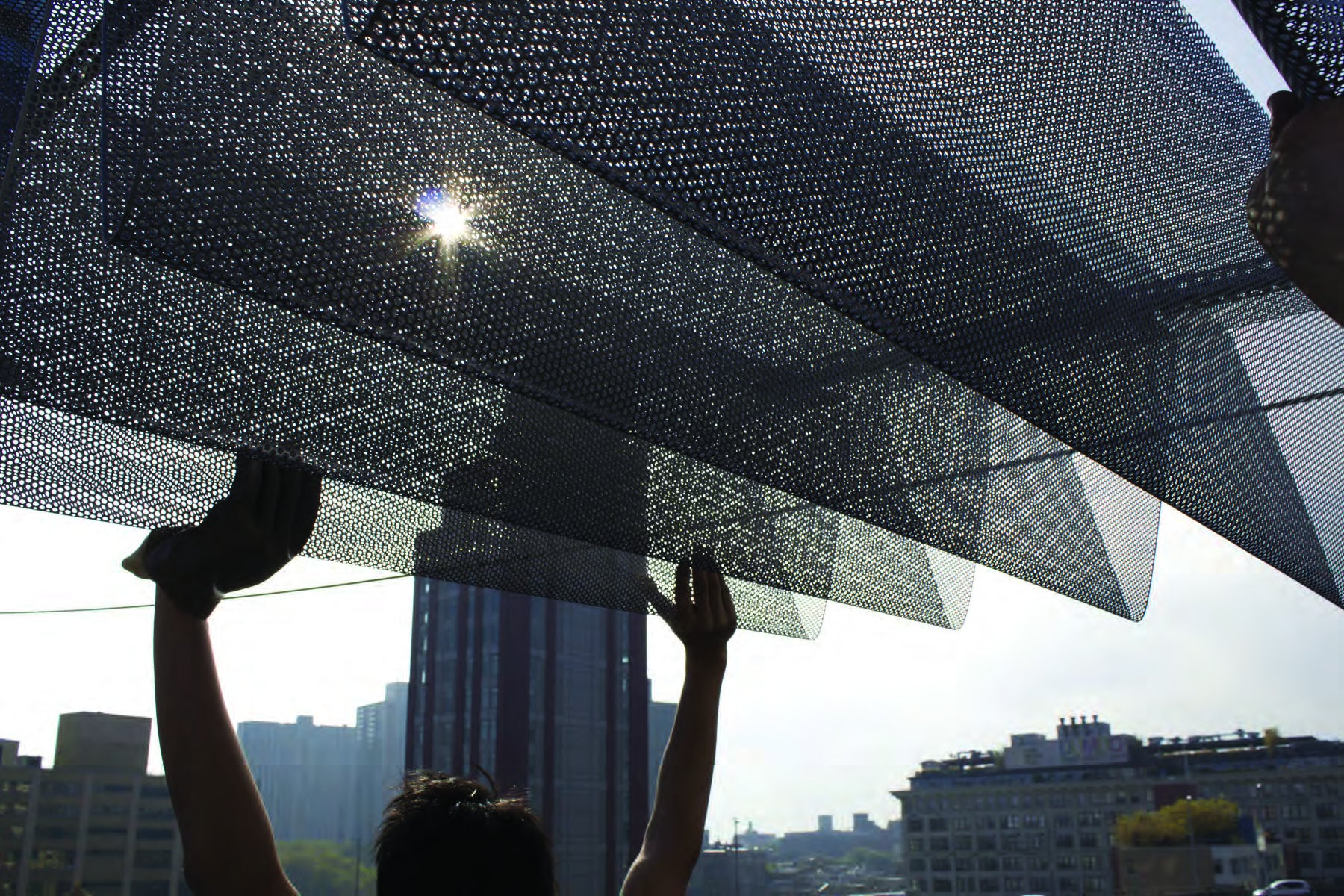Quick Summary
- Out Our Way: Major exhibition examining the art legacy of UC Davis and the work of first-generation art faculty
- Hoof & Foot: Site-specific commission by Bay Area artist Chris Sollars
- A Pot for a Latch: Participatory sculptural installation by Mexico City-based Pia Camil
- SO-IL: Museum as Process
Editors: High-resolution images related to these exhibitions are available at https://photos.ucdavis.edu/bp/#/folder/1645674
The Jan Shrem and Maria Manetti Shrem Museum of Art at the University of California, Davis, announces the four opening exhibitions that will inaugurate its new, architecturally significant museum building beginning Sunday, Nov. 13.
Hoof & Foot: A Field Study is a site-specific commission by Bay Area artist Chris Sollars; A Pot for a Latch is a participatory installation by the Mexico City-based artist Pia Camil; Out Our Way is the most comprehensive museum exhibition to date to examine the creative community that in the early 1960s propelled UC Davis into the forefront of art internationally; and SO-IL: The Museum as Process is an exhibition on the architecture and making of the new museum organized by the architectural firm SO – IL.
“Our new contemporary art museum is a place where artists, students and scholars from every discipline connect with our community and explore how the present is informed by our past. Our museum is open to new ideas and free to all,” said Rachel Teagle, founding director.

Out Our Way
Drawn from the collections of major museums and private collections nationwide as well as UC Davis’ permanent collection, Out Our Way presents 240 paintings, sculptures, drawings and prints. Characteristic of the majority is an instinctive embrace of the vernacular and the desire to ingeniously transform the stuff of daily life.
“Nearly 60 years ago, Richard L. Nelson, the founding chair of the UC Davis art department, allowed — no, even encouraged — the artist teachers he hired to challenge and push one another,” said Teagle, who is co-curator of the exhibition with guest curator Jessica Hough. “These artists were incredibly different from each other, artistically and philosophically. Today, some are internationally recognized, others recently rediscovered. But each was an essential ingredient to the intellectual cross-pollination that nurtured this creative community.”
Represented in Out Our Way are the 12 artists Nelson hired during his tenure (1952-70): Wayne Thiebaud, Robert Arneson, William T. Wiley, Roy De Forest, Roland Petersen, Manuel Neri, Ralph Johnson, Ruth Horsting, Daniel Shapiro, Tio Giambruni, Jane Garritson and John Baxter.
The exhibition visitor will first encounter a signature work by each artist in Out Our Way, providing a starting point from which to explore the pivotal moment each artist experienced at UC Davis.
A prime example of how profound change can well up quickly within an artist is Cup of Coffee (1961) by Thiebaud. Already present are hallmarks of his mature style — the use of shadow, and color coming together in the outline of objects — and the kind of formal investigation that consistently set him apart from the Pop artists.

Other exhibition highlights include Petersen’s Picnic series, circa 1965; Arneson’s Herinal (no date), representative of his important body of toilets and urinals made from 1962 to 1964; seminal works like Neri’s Ceramic Loop IV (ca. 1961-65), a ceramic sculpture similar to that featured in the UC Berkeley Art Museum’s Funk exhibition (1967); and brash experiments that strike one today as prescient. Period photographs, printed materials and film clips provide context for these works of art, created in an art world very different from the networked one of today.
Out Our Way proposes that the tight community formed by these artists in the ’60s was a generator of creativity. Underlining this premise are the surprising number of featured artworks that were exchanged among artists.
This exhibition will be on view through March 26.
Chris Sollars / Hoof & Foot: A Field Study
In conjunction with the grand opening, Bay Area artist Chris Sollars will create a large-scale video installation highlighting the symbiotic relationship of learning between animals and students on the campus of UC Davis, a university rooted in agriculture and home to the world’s foremost school of veterinary medicine.
For the commission, the artist uses the hoof and foot as a grounding point and creates imagery generated by conversations with UC Davis faculty members and students. Sollars has reached out to students, asking them about topics such as the body, socialization and stress, and confronting conflict. These conversations have formed the basis of the artist’s imagery and the parallels he draws between how students and animals on campus react to stress.
Prior to the opening, Sollars and a crew of students will ride through campus on a tricycle, with a cart in front that is rigged with a projector, showing a video trailer of the art installation on walls of buildings near where students congregate. Multichannel video projections will be used in the final installation.
Sollars is best known for creating mixed-media installations that reclaim, recapture and disrupt public spaces through interventions and performances. Among other honors, he is a recipient of a Guggenheim Fellowship (2013), San Francisco Arts Commission Individual Artist Commission Grant (2013) and a Headlands Center for the Arts residency (2009).
This exhibition will be on view through Feb. 19. Curator: Jennifer Wagelie, Manetti Shrem Museum.
Pia Camil / A Pot for a Latch
This participatory sculptural installation is inspired by the outdoor market booths of the artist’s hometown, Mexico City, as well as indigenous gifting economies and modernist art and design. It is fabricated of five open grid panels, each equipped with hooks, shelves and hardware. On designated days during the run of A Pot for a Latch, members of the public will be invited to exchange their “objects of desire” for others on display. The installation highlights the dialogue between vernacular and fine art aesthetics, and references an alternative economy that circumvents transactional commerce. Its title references the Native American gift-giving feasts of the Northwest Coast.

Camil often transforms urban and industrial objects into handmade ones, perhaps suggesting the failing aspects of modernist culture and critiquing the appearance of decay often associated with the urban landscape in Mexico City.
The artist first presented A Pot for a Latch at the New Museum in New York in January. Her other solo exhibitions have included The Little Dog Laughed (Blum & Poe, Los Angeles); Entrecortinas: Abre, Jala, Corre (Galería OMR, Mexico City); Espectacular Telón (Sultana Gallery, Paris); and Cuadrado Negro (Basque Centre-Museum of Contemporary Art, Vitoria-Gasteiz, Spain). Camil’s work is included in Colección Jumex and Colección Patricia Phelps de Cisneros, among others.
This exhibition will be on view through Feb. 19. Guest curator: Betti-Sue Hertz.
SO – IL / The Museum as Process
“SO-IL: The Museum as Process” consists of artifacts that illustrate and interpret the process of creating the museum. Created in collaboration with artists and designers they take the form of photography, graphics and installation. The collaboration was with Luisa Lambri and Richard The / TheGreenEyl.
Founded by Florian Idenburg and Jing Liu in 2008, and currently run in partnership with Ilias Papageorgiou, Brooklyn, New York-based SO – IL has since amassed a significant body of work. With projects ranging from innovative workspaces to cultural centers, the firm brings experience from the fields of architecture, academia and the arts to each project. The name SO – IL, which stands for Solid Objectives – Idenburg Liu, reflects the firm’s aim to distil concepts and ideas into simple built forms. Through an iterative process of model making, SO – IL uses direct engagement with materials to refine the experiences the spaces produce.

After a design competition in 2013, SO – IL was chosen along with associate architects Bohlin Cywinski Jackson and contractor Whiting-Turner to design the Jan Shrem and Maria Manetti Shrem Museum of Art. In the exhibition, SO – IL will take viewers through the inspiration/interpretation phase, the design process and the making of a museum.
Visible along Interstate 80, the museum’s design signature, the Grand Canopy, channels the intense light of the region into constantly changing shadows and silhouettes. The sweeping, permeable roof tops a low-slung, single-story 30,000-square-foot interior.
The canopy arcs as high as 34 feet on the freeway side and dips as low as 12 feet at the front, which is across the street from the Robert and Margrit Mondavi Center for the Performing Arts — a primary entrance to the campus that forms part of an arts corridor. The Grand Canopy cover comprises 910 triangular, honed aluminum infill beams, fit into an intricate pattern that evokes the patchwork texture and topology of the Central Valley. Just 40 slender, white steel columns support these 15,200 linear feet of beams, as well as 4,765 linear feet of steel.
Within the fluid interior, a glass lobby leads to a central courtyard, which opens to the sky, and to three distinct pavilions offering differing spatial qualities that accommodate exhibitions, art making, and classrooms and operations.
This exhibition will be on view through July 30.
Additional art installations
In addition to the opening exhibitions, several artists’ projects are on view that invite activation or participation by visitors:
- Yoko Ono, Wish Trees for Peace, 1996–2016
- Sandra Shannonhouse, Copper Cage, and, Rosemary Place, 1994
- William T. Wiley, Gong, 1986
Admission to the museum will be free.
Media Resources
Karen Nikos-Rose, Jan Shrem and Maria Manetti Shrem Museum of Art, 530-219-5472, kmnikos@ucdavis.edu
Anne Edgar, Anne Edgar Associates, 646-336-7230, anne@anneedgar.com